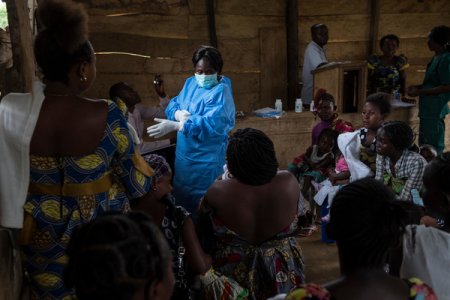
The Ministry of Health of the Democratic Republic of the Congo (DRC) today announced that a new case of Ebola has been detected in Butembo, a city in North Kivu Province, where a previous outbreak was declared over in June 2020.
The Butembo branch of the National Institute of Biomedical Research (INRB) confirmed Ebola in samples taken from a patient with Ebola-like symptoms who had sought treatment at a local health centre. The woman was the wife of an Ebola survivor. She has since died.
Butembo was one of the epicentres of the previous Ebola outbreak in eastern DRC. It is not unusual for sporadic cases to occur following a major outbreak.
Due to the enormous local capacity built in the previous outbreak, the North Kivu Provincial health authorities are leading the current response with support from the Ministry of Health and the World Health Organization (WHO). WHO provided training to laboratory technicians, contact tracers, local vaccination teams and reached out to community groups to raise Ebola awareness as well as put in place an Ebola survivor programme.
“The expertise and capacity of local health teams has been critical in detecting this new Ebola case and paving the way for a timely response,” said Dr Matshidiso Moeti, WHO Regional Director for Africa. “WHO is providing support to local and national health authorities to quickly trace, identify and treat the contacts to curtail the further spread of the virus.”
WHO epidemiologists are on the ground investigating the case. Already more than 70 contacts have been identified. Disinfection of sites visited by patient is also ongoing.
Samples from the confirmed Ebola patient have been sent to the National Institute of Biomedical Research’s main laboratory in Kinshasa for genome sequencing to identify the strain of the Ebola and to determine its link to the previous outbreak.
The DRC’s 10th Ebola outbreak which lasted for nearly two years was the second largest in the world and by the time it ended there were 3481 cases, 2299 deaths and 1162 survivors.
Response to the outbreak was particularly challenging due to insecurity that disrupted emergency efforts.
SOURCE: WHO







